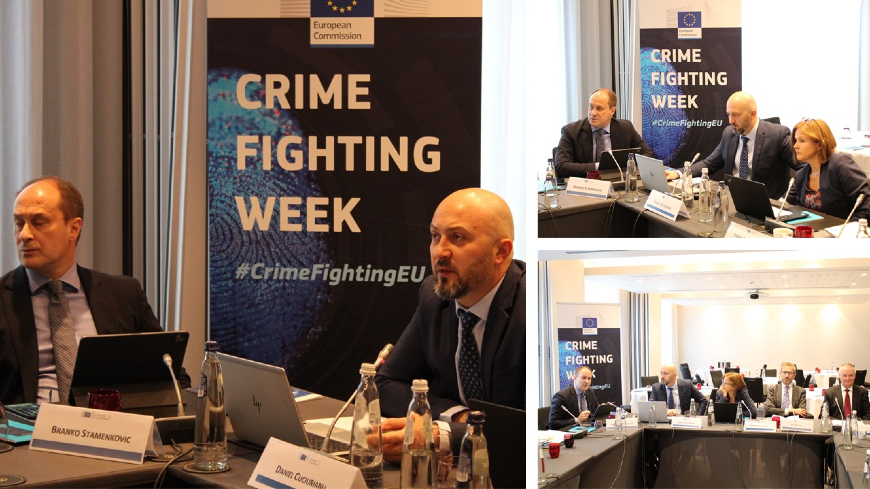
From 26 until 30 September in Brussels, the external relation DGs of the European Commission organised the second edition of the Crime Fighting week, in Brussels, bringing together practitioners and policymakers involved in combating Transnational Organised Crime beyond the EU’s borders.
The event enabled participants to take stock of this ever-evolving threat and provided an opportunity for greater operational coordination between EU actors and initiatives at regional, transregional and global levels.
The meeting gathered European Commission delegates working on countering transnational organised crime in partner countries of the EU, based in EU Delegations and in headquarters, as well as project leaders, representing consortia, EU MS or international organisations that implement EU funded projects across the world.
The iPROCEEDS-2 project was invited to join the session for European Commission officials working on the Western Balkans (and the neighbourhood of the EU). The topic of the session was “Challenges and opportunities of new technologies for law enforcement and criminal justice actors” and the panel was composed of speakers from Council of Europe, European Commission, Europol and Eurojust, who touch upon the following topics:
- Enhancing co-operation and disclosure of electronic evidence – Updates on the capacity building activities of the Council of Europe in Western Balkans and Presentation of the “Second Additional Protocol to the Convention on Cybercrime”New technologies : challenges and opportunities for law enforcement. Presentation of Innovation Lab, Europol
- Securing and obtaining electronic evidence in cross border investigations and prosecutions,
- Euromed Justice, Eurojust
The iPROCEEDS-2 delegates introduced the audience from EU Institutions (Commission, Council, EEAS), INTERPOL, UNODC, EMPACT Drivers, CEPOL, FRONTEX, EMCDDA and representatives from EU Member states to the mandate, objectives and results of Council of Europe efforts in the region, on:
- Strengthening domestic legislation on cybercrime, electronic evidence
- Developing cybercrime and cybersecurity policies and strategies
- Strengthening the capacities of criminal justice authorities to combat cybercrime and handle electronic evidence
- Enhancing the cooperation between criminal justice authorities and service providers
- Providing judicial training on cybercrime and electronic evidence
- Enhancing the international cooperation
Regarding the Second Additional Protocol to the Convention on Cybercrime, the key presented points were:
- Cybercrime Convention of Council of Europe, as a global standard in suppression of cybercrime
- Surge in world-wide levels of the cybercrime and cyber security issues with criminal justice system falling behind it
- Necessity for the new approach in mutual legal assistance in criminal matters regarding cybercrime
- New tools at disposal which most likely will change the face and pace of the MLA for cybercrime
iPROCEEDS-2 project webpage


